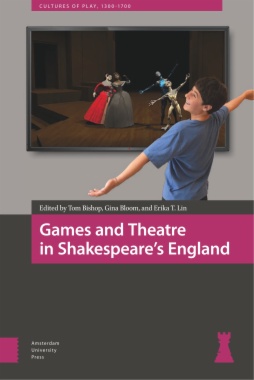Games and Theatre in Shakespeare's England brings together theories of play and game with theatre and performance to produce new understandings of the history and design of early modern English drama. Through literary analysis and embodied practice, an international team of distinguished scholars examines a wide range of games—from dicing to bowling to role-playing to videogames—to uncover their fascinating ramifications for the stage in Shakespeare’s era and our own. Foregrounding ludic elements challenges the traditional view of drama as principally mimesis, or imitation, revealing stageplays to be improvisational experiments and participatory explorations into the motive, means, and value of recreation. Delving into both canonical masterpieces and hidden gems, this innovative volume stakes a claim for play as the crucial link between games and early modern theatre, and for the early modern theatre as a critical site for unraveling the continued cultural significance and performative efficacy of gameplay today.
- Cover
- Table of Contents
- Acknowledgments
- List of Abbreviations
- Introduction
- Tom Bishop, Gina Bloom, and Erika T. Lin
- Part I
- 1. The Player’s Game
- The Activity of the Player in Early Modern Drama
- 2. “The Madnes of Tenys” and the Commercialization of Pastimes in Early Tudor London
- 3. The Roll of the Dice and the Whims of Fate in Sixteenth-Century Morality Drama
- 4. “The games afoote”
- Playing, Preying and Projecting in Richard Brome’s The Court Beggar
- Part II
- 5. Playing with Paradoxes in Troilus and Cressida
- 6. Bowling Alone, or The Whole Point of No Return
- 7. Playing (in) the Streets
- Games and Adaptation in The Merchant of Venice
- Part III
- 8. The Moods of Gamification in The Tempest
- 9. Videogames and Hamlet
- Experiencing Tragic Choice and Consequences
- 10. Shakespeare Videogames, Adaptation/Appropriation, and Collaborative Reception
- 11. Shakespeare, Game, and Play in Digital Pedagogical Shakespeare Games
- Jennifer Roberts-Smith and Shawn DeSouza-Coelho
- Epilogue: Field of Play
- Gamifying Early Modern Theatre and Performance Studies
- Index

